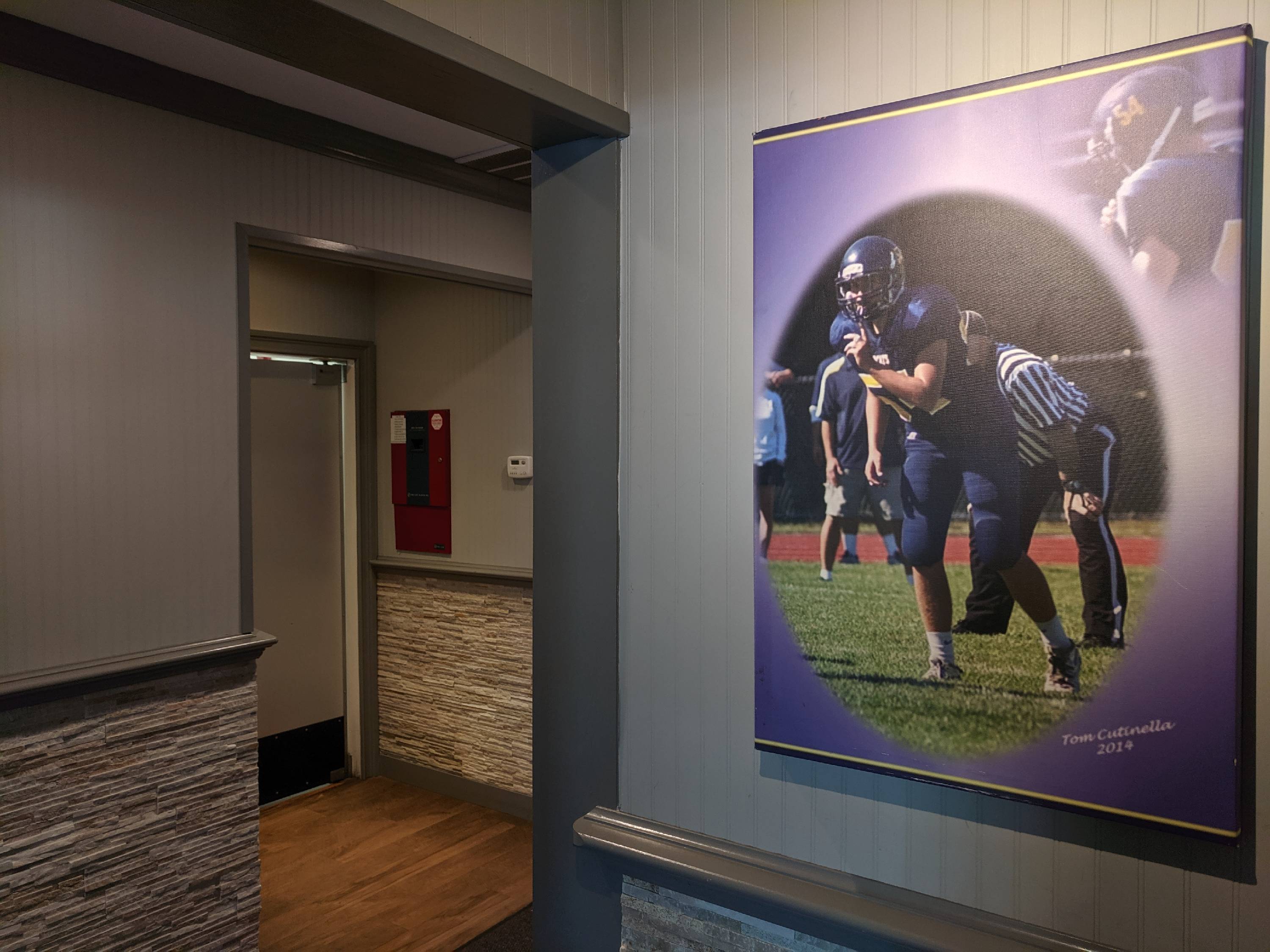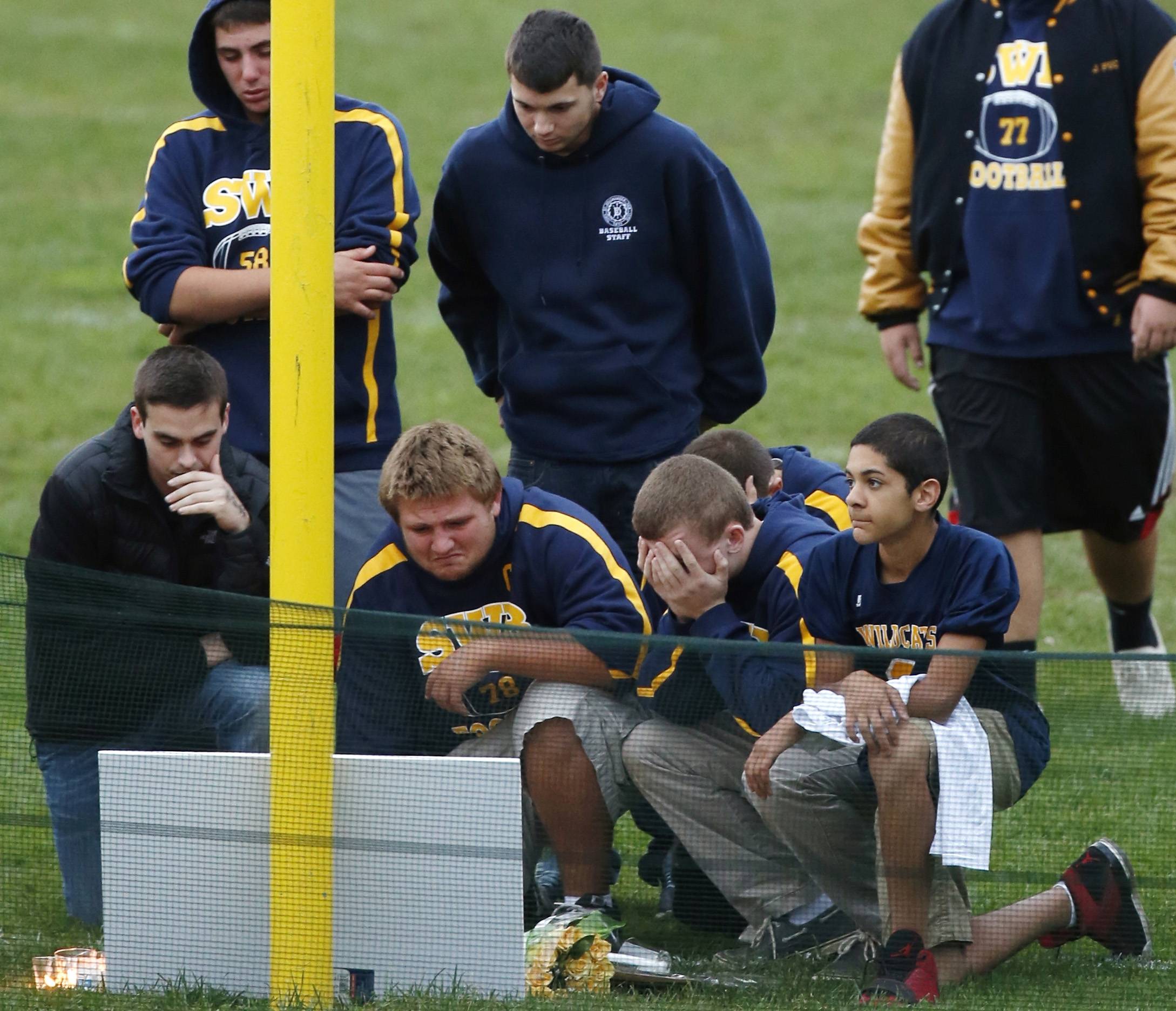








Tom's Legacy
Karen and Cam Crowell are high school sweethearts. When they got married last year, their hearts became one. But Karen’s heart used to belong to Tom Cutinella.
“I think about him every day,” says Karen Crowell.
Cutinella died after getting hit in the head during a Shoreham-Wading River high school football game.
Video: A Guardian Angel
Three months earlier, Cutinella celebrated his birthday by getting his driver's permit. But he also decided on that same day to become an organ donor.
“Tom is a giver. And that's what people talk about. He gave in life and he gave in death,” says Frank Cutinella, Tom’s father.
Karen Crowell was diagnosed with cardiomyopathy – an enlarged heart – in sixth grade. Over time, her heart only got weaker.


At 21 years old, just days before graduating college, Karen was hospitalized and was told she likely had less than a year to live. She needed a transplant.
Interview: Karen Crowell - Received Tom's heart.Wayne Smallwood, 56, is a former Babylon High School basketball player. In his late 40s, he developed diabetes, which led to chronic kidney disease, and a spot on the organ donation wait list.
"It was one of those situations where they basically said you're not going to die overnight," says Smallwood. "You just don't have a long, period."
Smallwood was on the wait list for two years. On Oct. 2, 2014, shortly after Tom Cutinella died, Smallwood got a call saying doctors had a kidney and pancreas that would save his life.


"I said, 'Where? How?' She said, 'Well, a young man just died on Long Island in a football accident,'" says Smallwood. "I said, 'Wait a minute, I just saw that on TV. Was that Shoreham-Wading River? She said, 'I'm not allowed to tell you, but that's it.'"
And that's how Tom Cutinella became Wayne's guardian angel.
A year after receiving Tom's organs, Karen Crowell and Wayne Smallwood got the chance to meet Tom's family in Wading River.
"They are all an extension of Thomas. That's part of who he is," says Kelli Cutinella, Tom's mother. "For me it's like bringing the family back together again."
Wayne and Karen have become family to the Cutinellas. It's why Karen was at Eisenhower Park last month as the Cutinellas spoke at an organ donor event. And it's why she's tested her and Tom's heart by running the Tunnel to Towers race with Kelli in Tom's memory for the past four years.
It's also why, at Crowell's wedding, Kelli was there with the most important women in Karen's life.
"Kelli is funny, she's like another mom in ways," says Crowell. "Someone I can talk to if I'm having issues or trying to figure things out in my own life. She is in a very organic way, always there for me."
Interview: Wayne Smallwood
Karen and Wayne have done their best to be there for the Cutinella family, including this summer when they celebrated what would have been Tom's 21st birthday. And it's why Wayne texts the family nearly every week.
"We always text each other really solid thoughts and solid feelings about how we feel about one another and how we feel about Tom," says Smallwood.


And it's why Wayne says when he finally does get to heaven, he says he will thank God first, and then he'll thank Tom Cutinella.

Apprehension in the Aftermath
High school football can give kids the thrill of a lifetime, but it can also give parents nightmares.
Five years after Shoreham-Wading River’s Tom Cutinella died due to a hit on the football field, the debate over the future of high school football on Long Island rages on.
VIDEO: Safety Concerns
Tom’s father Frank Cutinella has taken center stage on the issue.
“We can’t ignore what I ignored or didn’t know 15 years ago when I signed my son up,” says Frank Cutinella.
Sarah Bogarty says she isn't ignoring the warning signs with her two children, neither of whom will be joining a football team.


“It’s too dangerous. There’s always someone being carted off a field, always,” says Bogarty. “So, to me, that’s just too much.”
Bogarty isn’t alone. A recent Newsday study that examined state participation in high school sports said in a three-year span, high school football participation is down 7% nationwide. On Long Island, it’s down 18%.
LINK: More on this story from Newsday.com
“No one in this country, no one in Suffolk, no one in the state is being aggressive enough, or progressive enough in changing football, and that’s why numbers continue to drop,” says Cutinella.


The drop has hit even harder out east, where for the third year in a row, East Hampton has not been able to field a football team.
But Suffolk’s Section 11 Executive Director Tom Combs says there are many factors contributing to lower numbers. He adds that football is as safe as it can be.
Interview: Section 11 Executive Director Tom Combs
“The helmets are better, there’s more awareness, the kids are being taught at an earlier age how to tackle correctly,” says Combs.
Parents and officials do agree on one thing – proper teaching at the youth level is needed now more than ever. Some say tackling at lower levels should become a thing of the past.
“There should be no tackling in youth football until they’re 11 or 12,” says Combs. “We don’t need 8-year-olds tackling each other.”
Just last month, two junior varsity players in Long Beach were airlifted to a hospital after colliding with teammates. Both ended up OK, but it was a scary reminder of the dangers of football.
Interview: Jim Verrizano - President of the LI Sound Sharks PAL
“This is Tom's sport, he would want it to be preserved, but I think drastic changes in the game may bring people back -- but I don’t know who's listening anymore,” says Cutinella.